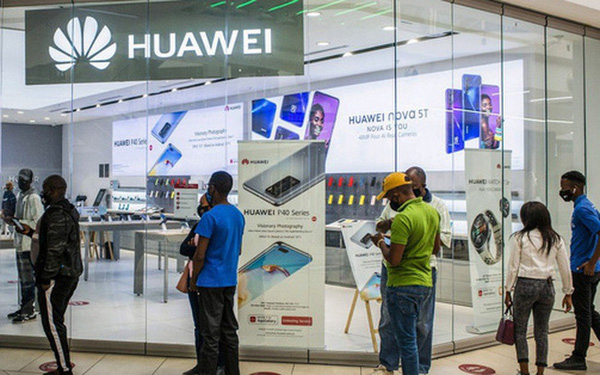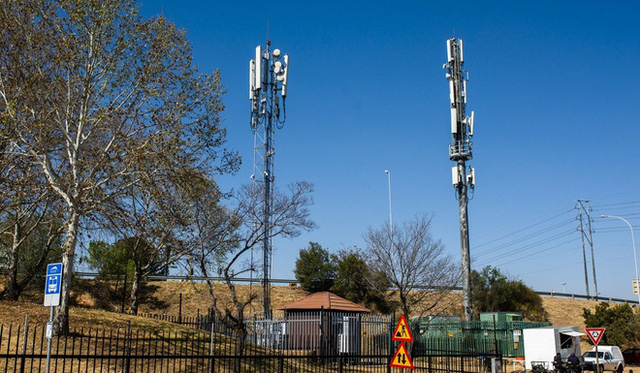Stated by the West, “banned”; why is Huawei still warmly welcomed by the “Black Continent”?
- Tram Ho
“We will choose what’s best for our country”
When the UK government banned Huawei from participating in the country’s 5G telecommunications development last month, South African officials were still using the company’s telecom equipment for their 5G wireless Internet service, according to Post. Morning Hoa Nam Electric (SCMP – Hong Kong).

Specifically, according to SCMP, South Africa’s only mobile data network operator Rain, announced the launch of the first independent 5G wireless network in cooperation with Huawei telecom. Huawei has also partnered with local telecom group MTN Group to roll out 5G networks in the cities of Johannesburg, Cape Town, Bloemfontein and Port Elizabeth.
The Kenyan government is expected this year to also follow the South African model of cooperation after the largest telecom company in the country, Safaricom, conducts tests of Huawei’s new mobile internet technology.
Several other countries including Lesotho, Egypt, Nigeria, Uganda, Senegal, Morocco, the Democratic Republic of the Congo and Gabon – are all undergoing tests and at different stages of 5G network deployment.
Although shunned by the West, analysts say Huawei will continue to be the main telecom provider in Africa’s “Black Continent”. In fact, China’s telecommunications giant is still receiving a warm welcome in Africa.
Last year, South African President Cyril Ramaphosa suggested that the country would choose Huawei to deploy 5G networks, while also criticizing US officials. “America is punishing Huawei and using it as a pawn in the US war with China,” said President Ramaphosa. “We want to own 5G networks and we know from where we can buy this advanced telecommunications network.”
Kenya’s Minister of Information, Communications and Technology, Joseph Mucheru, said Kenyan officials were unaffected by Washington’s decisions. “US foreign policy does not affect policymaking in Kenya including the technology sector,” Mucheru said last year. “We will choose what’s best for our country.”
Why does Africa still warmly welcome Huawei?
Analysts said that while African countries continue to face financial difficulties, Huawei will still be a key supplier of telecom equipment in the continent.
Mr. Peter Wanyonyi, Kenyan living in New Zealand, said the economic impact of the Covid-19 pandemic will make the situation more difficult. “As a result, Huawei is still a good choice as it is a leader in the telecom sector and has the ability to provide financial support. African countries will continue to depend on internships,” Wanyonyi said . this group “.
Wanyonyi said the reason Western countries “make trouble” with Huawei is partly based on concerns about the group’s ability to support the Chinese government’s espionage, “but this is not the concern of China. Africa”.

Photo: Bloomberg
A Huawei representative declined a request for comment, but in a previous interview, Mr. Adam Lane, senior director of public affairs at Huawei Group in Kenya, said the US restrictions would not affect their business in Africa. According to Lane, Huawei is ready to supply 5G equipment to African operators as soon as they need it.
According to SCMP, Huawei has supplied 4G telecommunications equipment to more than a quarter of Africa and has established a presence in 40/54 countries since it first arrived in Africa in 1998. Overall, Africa lagging behind the world in 5G network deployment because of frequency restrictions, lack of regulations to allow 5G deployment and financial difficulties.
Derrick Chikanga, IT services analyst at consulting firm Africa Analysis, said due to the strong relationship between China and the majority of African countries, most of these countries will not cut off. doing business with Huawei.
“As long as business relationships are profitable, most countries on the black continent will continue to use Huawei’s technologies,” said Chikanga. As a result, this group still plays a key role in the deployment of 5G in African countries and changes in accordance with the needs of this market. “
Huawei’s strategic role in China’s multi-billion-dollar Belt and Road Initiative (BRI) could further strengthen its presence in Africa.
China’s leading telecommunications conglomerate is also supporting the development of major BRI projects in Africa, including the construction of a $ 4.7 billion Standard Rail communication system in Kenya. It connects from the coastal port city Mombasa to the capital Nairobi and then to Naivasha, a town in the Central Rift Valley. As part of the BRI, this project is funded and managed by China.
Mr. Roger Entner, founder and lead analyst at Recon Analytics based in the US, said Africa will remain an important market for Huawei as the continent is a key part of its BRI project. China, at the same time added that weak financial capacity is the core issue of African countries.
“Poor countries value a low-cost solution and better customer service than any other,” Mr. Entner said.
Huawei equipment is much more affordable than European brands, such as Nokia and Ericsson, or South Korea’s Samsung, but in many cases, Huawei also offers favorable financial conditions for some projects. projects in Africa, usually supported by the Chinese government. “The possibility that African countries ban the Huawei group depends directly on the support from the US administration, especially if President Trump is re-elected,” Mr. Entner said.
However, the Huawei group is also unavoidable in getting involved in controversial events in Africa.
In 2018, Le Monde (France) reported that the group had placed wiretapping equipment at the headquarters of the African Union in Addis Ababa, Ethiopia. And last year, Huawei filed a protest against The Wall Street Journal after it reported that it was assisting incumbent Ugandan officials and Zambia to eavesdrop on political opponents. Of course, Huawei representatives have denied these allegations.
Source : Genk
